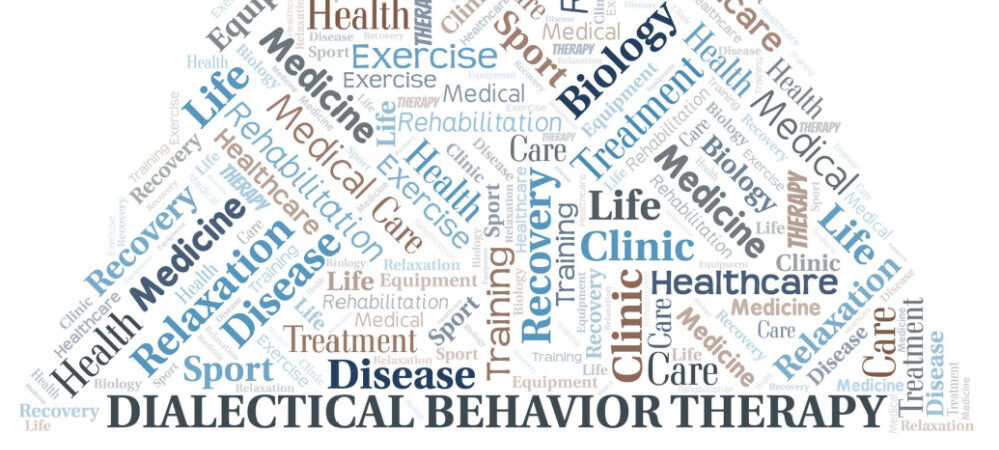Dialectical behavior therapy (DBT) was developed by psychologist Marsha M. Linehan in the late 1980s as a means to more effectively treat individuals diagnosed with borderline personality disorder (BPD), suffering from chronic suicidal ideation. It is an evidence-based psychotherapeutic approach that combines standard cognitive behavioral therapy (CBT) techniques for emotional regulation and reality testing with concepts derived from Buddhist meditative practice such as awareness, mindfulness and attentiveness to current situations and emotional experiences to emphasize the psychosocial aspect of treatment. Although it was originally developed to and remains the gold standard method of treatment for individuals diagnosed with borderline personality disorder, its efficacy has expanded and DBT is now used to treat many different mental health conditions.
The Structure
Dialectical behavior therapy is a multifaceted, rigidly structured therapeutic approach. It is carried out in three distinct therapeutic settings: weekly individual psychotherapy sessions, weekly DBT skills training group sessions, and as-needed phone coaching. Within each setting, DBT focuses on the teaching skills in four fundamental areas, known as the four modules, which are:
- Core mindfulness: focuses on improving an individual’s ability to accept and be present in any given moment. The skills in this module help individuals learn the importance and value of slowing down and taking pause instead of succumbing to intense emotions and acting in destructive ways.
- Distress tolerance: focuses on increasing an individual’s tolerance of negative emotion as opposed to attempting to avoid or escape from it. The skills in this module help individuals learn various techniques for handling crisis (e.g., distraction, self-soothing, improving the moment, etc.).
- Emotion regulation: focuses on helping an individual identify, name, understand the function of, and regulate their emotions. The skills taught in this module are intended to help an individual learn to decrease the intensity of their emotions, sit with and experience strong emotions that are causing problems in one’s life, without impulsively acting on them.
- Interpersonal effectiveness: focuses on increasing an individual’s communication strategies. The skills taught in this module help an individual learn to identify what their own needs are in a relationship and develop assertive and effective communication methods to ensure those needs are met in a healthy, nondestructive way.
The full DBT program is intended to take twenty-four weeks to complete, as six weeks are allocated each of the four DBT skills modules. The Linehan Institute explains that it is not uncommon for the DBT curriculum to be repeated, creating a one-year long program. Shorter options that teach only a subset of the DBT skills have also been developed, which would reduce its overall duration. The Association for Behavioral and Cognitive Therapies refers to research suggesting “that ‘behavioral control’, that is the absence of suicidal behaviors and other life-threatening behaviors as well as severe quality of- life interfering behaviors, can often be achieved within four to eight months of comprehensive DBT.” The exact timeframe of a particular DBT program will depend on the specific needs of its participants, as the program may conclude in less time than the standard twenty-four weeks, or extend beyond, lasting longer than the twenty-four-week period.
The information above is provided for the use of informational purposes only. The above content is not to be substituted for professional advice, diagnosis, or treatment, as in no way is it intended as an attempt to practice medicine, give specific medical advice, including, without limitation, advice concerning the topic of mental health. As such, please do not use any material provided above to disregard professional advice or delay seeking treatment.


